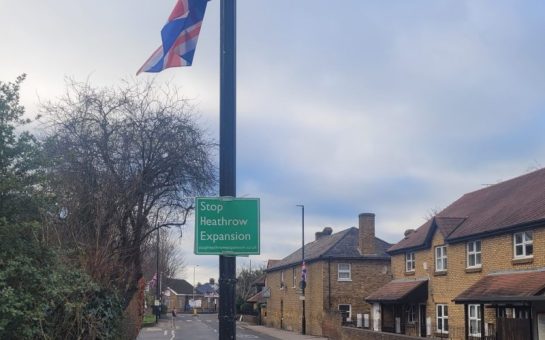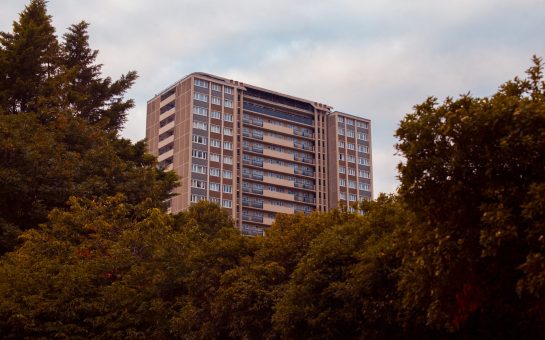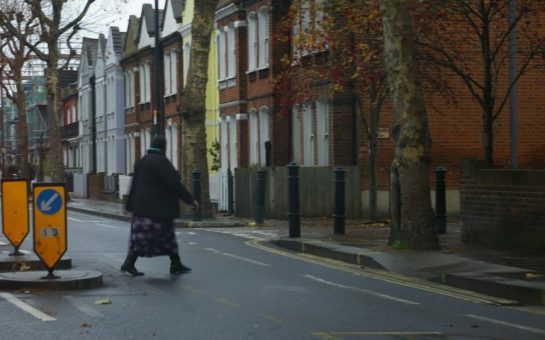Councils in London spent close to £400,000 on air travel in ten years despite commitments to reduce carbon emissions, SWL can reveal.
The figures were obtained through responses to Freedom of Information requests submitted to all 32 London borough councils as part of an investigation into the ways local authorities are responding to climate change.
The data shows that £395,575 was spent on 911 separate flights to both domestic and global destinations between 2010 and 2020, with council officers travelling on a number of airlines, including Virgin Atlantic and Emirates.
A majority of spending, however, took place after 2014, with councils spending a total of £313,526 across six years.
Environmental campaigners have said the amounts raise questions about attitudes to reducing carbon footprints and warned that local authorities will need to find more sustainable methods of travel if they are to meet net zero targets.
Director of Flight Free UK, Anna Hughes, said: “It’s not really surprising to see an institution such as a local council taking lots of flights.
“Cheap flights have become such a part of our work culture, and many organisations don’t think twice about putting their staff on planes.
“The reality of the climate emergency, however, is that we will have to change everything about the way we live.
“The high use of flights by councils shows they don’t really understand the practicalities of that, or that they haven’t realised the extreme damage done by taking lots of flights.
“Flights do contribute to the climate crisis, and councils putting their staff on planes will no doubt contribute further. Air travel is becoming less and less appropriate in the context of a climate emergency.”
The total amount is expected to be considerably higher with Greenwich, Havering, Hammersmith & Fulham, and Hillingdon councils exempting the release of data under Section 12 of the Freedom of Information Act.
Brent Council was responsible for just under half of the total expenditure, forking out £144,332 on 199 individual flights over seven years, while Wandsworth Council was found to have spent £41,421 for council officers to travel 134 times.
However, this is not the extent of the spending.
Wandsworth Council disclosed that an additional 88 trips had been taken by adult learners pursuing apprenticeships which were funded by EU initiatives.
Meanwhile, members of its Economic Development team also travelled eight times to a number of locations, including Shanghai and Cannes, to promote the Nine Elms Regeneration project which, funded by secondary sources, totalled more than £15,000.
This is despite signing the Nottingham Declaration on climate change in 2009 which saw Wandsworth Council commit to addressing the causes and impacts of climate change, and encourage residents and businesses to use sustainable transport.
A campaigner for the Wandsworth branch of Extinction Rebellion, Caroline Hartnell, said the figures sent a “poor message” about the authority’s commitment to becoming carbon neutral.
“What’s most significant about the flights is what they reveal about Wandsworth Council’s attitude,” she said.
“If you really want to be a carbon neutral organisation, then what message does it give that you would put your staff on planes to fly – whether it’s distanced or near?”
Hartnell added that the amounts spent by both Wandsworth Council and secondary sources of funding shows a “direct contribution” towards climate change, and warned that the authority will need to “change its habits” moving forward.
“This is one council in the UK. Every part of government has to be doing its bit if we are to stick to the aim of reaching net zero by 2050, and Wandsworth Council is definitely not doing its bit,” she added.
Her comments follow research from the Department for Business, Energy and Industrial Strategy which found that a single passenger travelling on a domestic flight in Britain can result in the output of 254g of CO2 for every kilometre they travel, compared to just 41g released by intercity train per passenger mile.
Over the last decade councils across London have declared a climate emergency, with 28 boroughs and the Mayor of London passing ‘climate emergency declarations’, with a majority pledging net zero targets.
However, some local authorities did not curb spending on air travel, with data revealing large spikes in the amounts being forked out on domestic and international trips.
Despite publishing its Energy Strategy Implementation Plan in 2013, Kingston upon Thames council spent more than £4,000 in 2017 alone on flights to South Korea to ‘raise the profile of Kingston as a Foreign Direct Investment location’.
Meanwhile, Lewisham Council spent £7,422.95 on various trips to Berlin to attend seminars hosted by its partner town, despite signing up to the 10:10 campaign to reduce its carbon emissions in 2010.
Overall, the number of flights taken by council officers across the capital increased year-on-year, with 202 trips in 2018-19, compared to just 13 in 2011-12 – an increase of 1,453 per cent.
London Assembly member, and the Green Party’s transport spokesperson, Caroline Russell, said that while councils have a number of responsibilities which may require long distance travel, everyday business should be “conducted virtually before heading to an airport”.
She added: “The last eighteen months has shown how straightforward it is to travel less and meet virtually.
“Every council should review their travel policies to ensure travel is minimised and use the lowest carbon options to help them meet their climate targets.
“As we face the climate crisis, every business and organisation needs to consider how to travel less and how to make those residual journeys.
“Local trips are best made by walking and cycling with longer distances travelled by coach, bus, tram or train.”
Cllr Krupa Sheth, Brent Council’s cabinet member for environment, told SWL: “Council officers do not fly anywhere on council business unless absolutely necessary. All of these flights are directly related to social workers working with vulnerable children.
“Family court orders may require social workers to assess a vulnerable child’s extended family in their home, which could be abroad, or accompany a child to be reunited with extended family members who live overseas, or visit a child in care a very considerable distance from Brent.
“As a part of our strategy we are developing a plan to achieve net zero across our estate and operations by 2030 and we will consider this issue and the potential to offset any necessary flights as part of that review process.”
A spokesperson for Wandsworth Council added: “Many involved arranging flights for adult learners and some young people in care pursuing apprenticeships that were funded by EU initiatives such as Erasmus+.
“This is because the non-negotiable condition of receiving significant sums of EU cash to support these schemes was for those participating to attend various events and conferences in Europe to showcase the initiatives.
“In these cases the flights were paid for with EU funds.
“Other cases were for fostering and adoption enquiries to check home conditions and circumstances of family members offering to adopt a child in care.
“This allowed us to check that the accommodation and home settings being offered to these vulnerable children were suitable and above all, safe.
“This changed during the pandemic with many of these checks being conducted virtually and moving forward this is something we will be exploring further.”
Feature image credit: Another Airplane! by xlibber via Flickr




